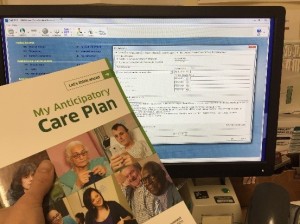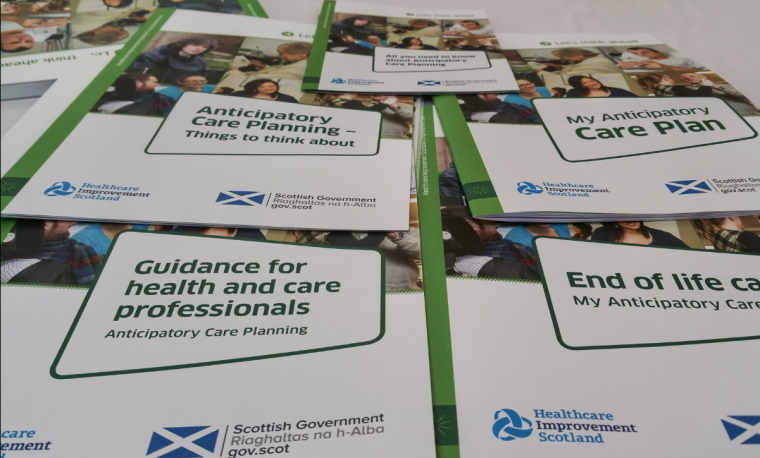
“I don’t have time to do an ACP.”
“That document is too big.”
“GPs have enough work without this.”
“Someone else should be doing it.”
These are all comments which I have heard my GP colleagues say when the topic of Anticipatory Care Planning comes up. And if I’m honest, there have been occasions when similar thoughts have gone through my head. But Anticipatory Care Planning is so much more than any document or the needs of a particular professional group, and I have come to realise that it is a fundamental component of our work in general practice.
Some of the most rewarding consultations I have had, started with an exploration of ‘what matters most‘ to someone. Recognition of such priorities enables the most effective use to be made of limited consultation time. And often I am surprised that the most important aspect of someone’s care is not what I thought it was going to be.
Take for instance my patient John, who has significant heart disease and was frustrated about the poor control of his blood pressure. I could see John’s irritation and was determined to find a new combination of drugs that would work better than the last. Each switch to a different medication required more blood tests and close monitoring, and unfortunately many of these new drugs made John feel dizzy and light-headed.
One day John told me that his greatest pleasure in life was spending time with his grandchildren, and until recently he would drive them to and from school each day. Side effects from his medication were preventing this, which in turn caused John to feel stressed. Only by understanding his priorities were we able to make progress. He was willing to accept the risk of a slightly higher blood pressure if it meant he could safely drive his grandchildren and ‘feel useful’.
So, after discussion we stopped his medication, put the BP monitor to the side, and instead explored other aspects of his future care which were important to him. His Key Information Summary was updated to include his thoughts about cardiopulmonary resuscitation and he set about appointing a welfare power of attorney. John was able to start driving again and his levels of frustration reduced, as did his blood pressure!
 Anticipatory Care Planning is not a one-off event. It is a process that starts with a conversation and which can develop and evolve over time. The beauty of general practice is that we have opportunities to initiate that conversation and contribute to the development of an ACP over weeks, months and sometimes years.
Anticipatory Care Planning is not a one-off event. It is a process that starts with a conversation and which can develop and evolve over time. The beauty of general practice is that we have opportunities to initiate that conversation and contribute to the development of an ACP over weeks, months and sometimes years.
Professionals working in other parts of health or social care can also make a big contribution to ACP. Tools such as My ACP can support this process, and stimulate helpful discussions within families. There is still a challenge translating information from hospital clinic letters and My ACP onto the KIS. I welcome recent progress with the new national digital platform, which in time will allow a wider group of people to contribute to an electronic shared ACP.
So, ACP is not just for me. It is for all professional groups working across health and social care, and most importantly it is for the person, their family and carers.
Paul Baughan, GP, Dollar Health Centre, Clackmannanshire
For more information and resources relating to ACP visit the ACP toolkit.



